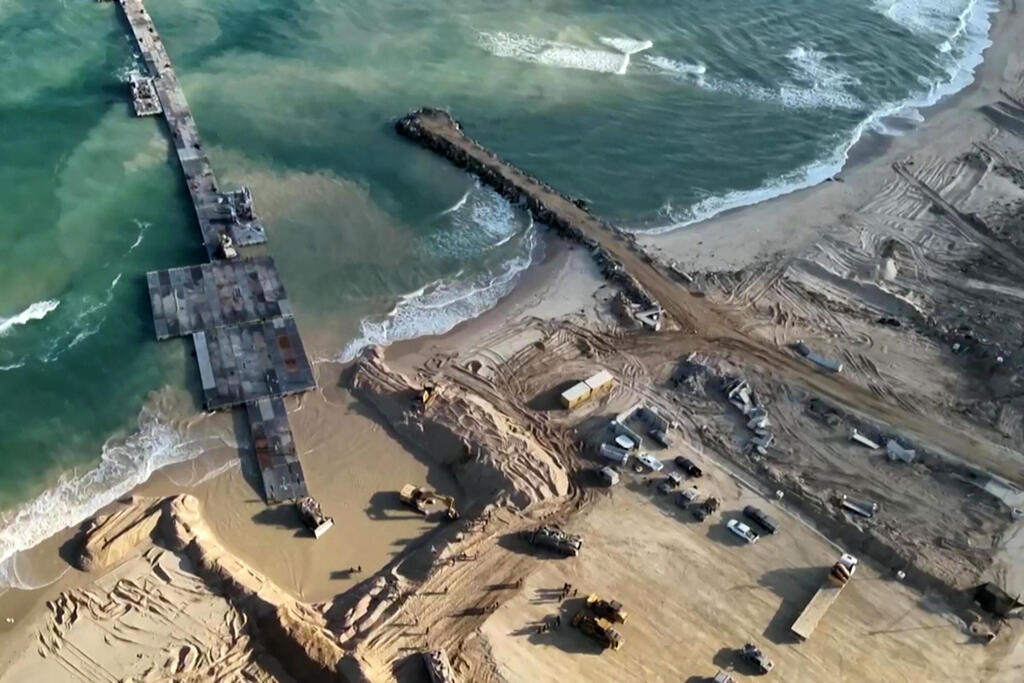Getting your Trinity Audio player ready...
A newly released report from the Pentagon’s inspector general reveals major failures in a U.S. military operation to deliver humanitarian aid to Gaza via a floating pier, describing the mission as far more dangerous, costly and ineffective than previously acknowledged.
The $31 million project, dubbed "Trident" and launched by the Biden administration in spring 2024, aimed to bypass Gaza’s closed land crossings by delivering aid directly via the Mediterranean Sea. But the operation, according to the report, faced severe logistical and environmental challenges and suffered from poor coordination between the U.S. and Israeli militaries.
Sixty-two American service members were injured during the mission. One soldier, Cpl. Quavandrius Stanley, died five months after sustaining serious injuries while operating a forklift aboard a U.S. Navy ship. The report noted that it could not definitively determine whether all injuries occurred during official duties or in personal time due to inadequate documentation.
Although the pier was in place for three months, it was operational for only about 20 days. During that window, roughly 8,100 tons of aid—equivalent to 500 truckloads—were offloaded, meeting just one day’s worth of humanitarian needs for Gaza based on United Nations estimates.
The operation was plagued by high waves that damaged infrastructure, ships that ran aground and a lack of integration between U.S. Navy and IDF systems, which had not been designed to function together.
The inspector general cited multiple systemic issues, including insufficient training, lack of preparedness, flawed planning and a disregard for local environmental conditions, such as sea states and coastal terrain. The U.S. Transportation Command, which oversees coordination across military branches, also failed to meet required planning and readiness standards.
Compounding the challenges, the report found that the Navy had in recent years scaled back investment in over-the-shore logistics capabilities, retiring more robust floating pier systems and selling off much of its maritime support equipment. Between 2018 and 2019, the U.S. Army sold nearly half of its watercraft, leaving the military ill-equipped for a mission of this scale.
<< Get the Ynetnews app on your smartphone: Google Play: https://bit.ly/4eJ37pE | Apple App Store: https://bit.ly/3ZL7iNv >>
A separate report from the U.S. Agency for International Development (USAID) indicated that officials within the Biden administration had warned in advance of potential failure, citing rough seas and operational complexity. Critics, including aid organizations, described the effort as a costly and ineffective “humanitarian show” intended more as a political signal to the president’s Democratic base than as a practical relief effort.
The Pentagon report concluded that without substantial reform, the U.S. military may soon be incapable of executing Joint Logistics Over-the-Shore (JLOTS) operations under hostile or emergency conditions in the Middle East or other regions.




